#TAIWAN CHINESE
Explore tagged Tumblr posts
Text

Taiwan Chinese Education Center" is a Chinese language school where you can learn Chinese online from professional Chinese language teachers from Taiwan.
With a computer, smartphone, you can take authentic one-on-one Chinese lessons at home or from anywhere in the world.
●No. 1 quality of Chinese tutors in the field. More than 95% of our teachers have Chinese teaching qualifications or have graduated from a Chinese language education department. You can learn from top-notch Chinese teachers.
●Lessons are available every day from 9:00 am to 12:50 am. You can choose from more than 70 Taiwanese Chinese tutors and take lessons at your favorite time.
●A wide variety of free Chinese textbooks A wide variety of textbooks are available to suit your purpose and level. You can easily start without purchasing textbooks.
●Sharing learning progress among tutors The progress of each lesson is recorded in the lesson chart and shared with other tutors. You can continue to learn, so you don't have to worry about changing tutors.
●Ticket System Ticket system allows you to purchase a single ticket at your convenience, and lessons start at $20 per 50-minute session. You can continue to study without any difficulty.
●Lessons based on over 13 years of Chinese language experience We provide Chinese lessons tailored to each student's level and wishes. If you have any requests, please feel free to contact us.
About 40% of the students who have taken Chinese lessons at "Taiwan Chinese Education Center" so far have achieved their goals and dreams by learning Chinese for the first time, entering a university in Taiwan, passing a Chinese exam, using Chinese in a business situation, watching Chinese movies without subtitles, and speaking Chinese with friends in Taiwan and China!
Now it's your turn. Why don't you make "I can speak Chinese" come true? We are looking forward to taking your lesson.
#MANDARIN#TAIWANESE TUTOR#CHINESE#ONLINE TUTOR#TAIWAN#TAIWANESE#TAIWAN CHINESE#LEARNING CHINESE#LEARNING MANDARIN
1 note
·
View note
Text


I cannot believe I have been gifted with two Deaf love interests airing at the same time. A true gift from the BL gods. Thank you.
#see your love#blue canvas of youthful days#taiwanese bl#taiwanese drama#taiwan bl#chinese bl#deaf character#deaf romantic interest#deaf bl#bl drama#bl series#asianlgbtqdramas#asian lgbtq dramas#taiwanese bl drama#taiwanese series#disabled character#i love them so much#they are both my beloveds already
504 notes
·
View notes
Text
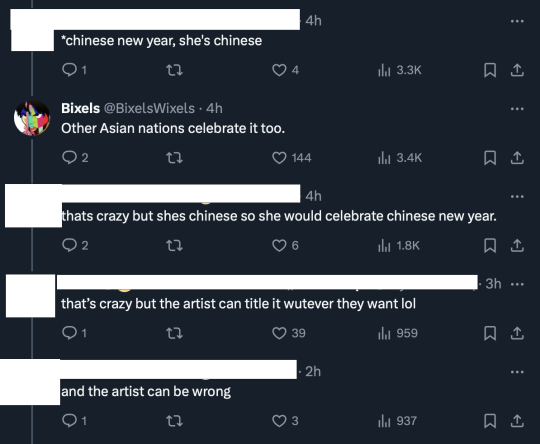
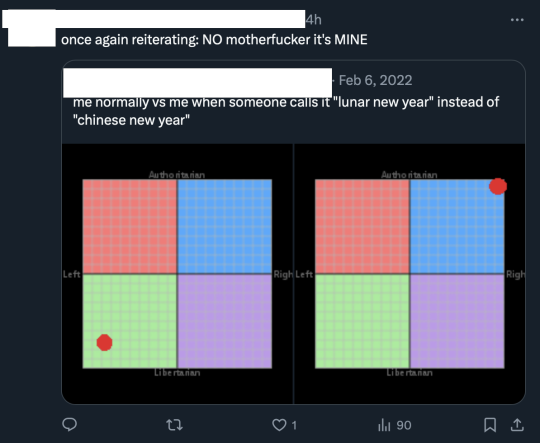
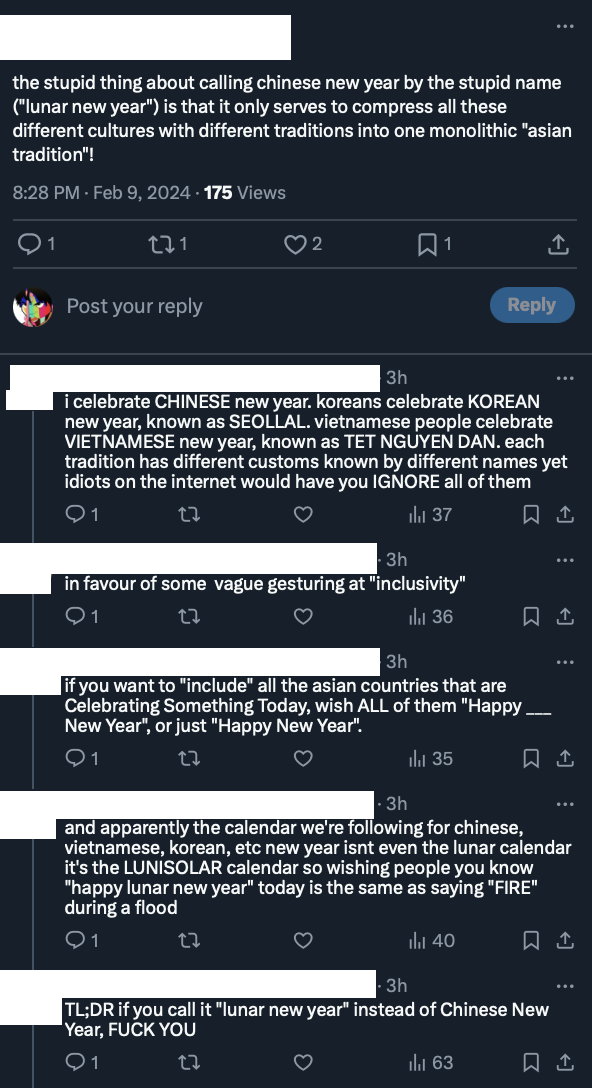
Jesus man, relax.
#this was in response to me saying “lunar new year” on the rarity art#personal#delete later#what in insane nonproblem to get this angry about#i asked my parents (taiwanese immigrants) about this and they said we use either but prefer lunar new year#because it's inclusive to koreans and vietnamese people who celebrate on the same day#lunar new year is an umbrella term same as “happy holidays.” this person is basically getting mad i said happy holidays instead of#merry christmas.#my family and i identify more as taiwanese than chinese so. we're not gonna say chinese new year much anyways#i sent this to my mom btw and she replied with basically “die mad i guess.” love you ma#this literally doesn't matter anyways i could have said “chinese new year” to caption that post and it wouldn't have mattered#the only reason i didn't is because i plan on drawing another art including carol (coco pommel) who's korean and celebrates the same day#like. most people in china/taiwan don't care they just say “happy new year” cuz it's the fuckin new year. someone saying lunar new year is#not erasure it's not flattening asian identities into a monolith. it's just an umbrella term.#anyways happy lunar new year happy chinese new year happy tet happy spring festival happy seollal#like i cannot stress enough to you guys that these holidays are on the exact same day and celebrate basically the same exact thing.#this is not an issue.
1K notes
·
View notes
Text
just a friendly note to the BL fandom on here that plenty of people enjoy queer-oriented shows like love in the big city and mainstream shows like spare me your mercy and classic BL approaches like Cooking Crush. Plenty of people see the queerness, the strengths, the value for viewers in all these shows.
just a friendly reminder that a work is not less queer because no one is protesting it. That’s not a legitimate metric across vastly different cultures. The differences between politics, religious majorities, and manners across QL producing countries is absolutely massive.
just a reminder, if we wanna talk about capitalism, that the whole idea of a work being better or worse, queerer or less queer, more valuable or less valuable based on it’s reception in numbers (either higher or lower) is not something Marx and Engels would be into, since they ascribed to exchange value over use value. The labor put into the work is where it’s at—and all of these shows had plentiful hours of (queer) labor put into them! But not everyone who talks about the wrongs of capitalism on here is actually interested in the finer details of how capitalism operates, the full political and economic realities of the companies making these shows, nor the individuals who are forced to fight for change within capitalism’s global structure.
just a friendly reminder that queer sex, queer kissing, queer love, and queer marriage are part of and entwined with a larger humanist struggle for agency and cooperation, and queer creators are allowed to adapt their works and connect queerness to those broader political questions, and the work does not become any less queer because it lacks nc scenes or marriage plots.
and just a friendly reminder that a simple BL romcom is equally as queer of a story as a story about HIV. They’ll have vastly different narrative structures serving different emotional goals, and they’ll likely have different audiences. Yet, somehow, like me when I wake up in a different mood every morning, they’ll still be gay.
327 notes
·
View notes
Text

I'm Taiwanese American and lived in Taiwan for a year after law school. Night markets have a special place in my heart!
I painted the top one after starting Marco Bucci's color class, and then applied what I learned in the bottom one.
#artists on tumblr#joyousjoyfuljoyness#my art#taiwan#taiwanese#night market#street food#urban painting#urban art#cozy vibes#cozycore#cozy#cozy aesthetic#color study#light study#art study#illustration#digital painting#digital artist#digital art#chinese lanterns#procreate
170 notes
·
View notes
Text
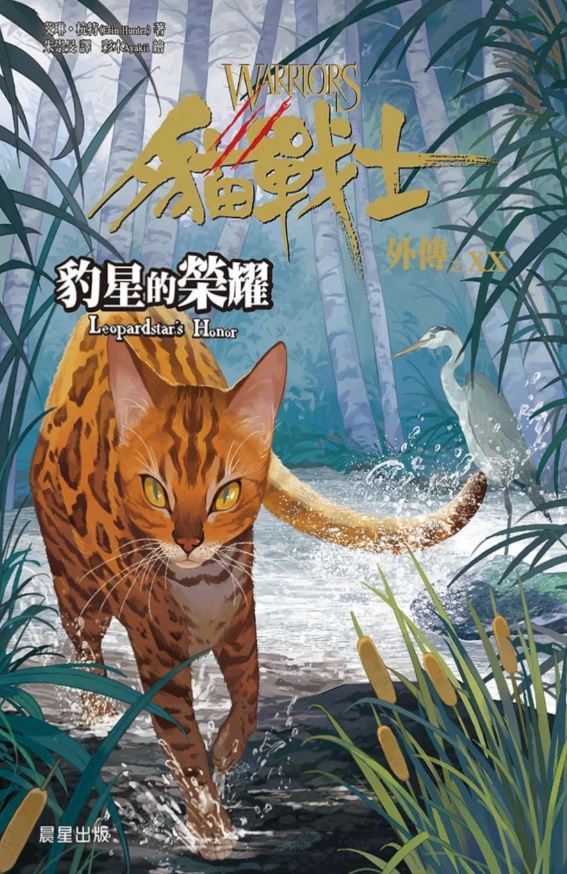
Title: Leopardstar's Honor
Arc: Super Edition
Type: cover
Country: Taiwan
Characters: Leopardstar
Source: https://warriors.fandom.com/wiki/Leopardstar%27s_Honor
740 notes
·
View notes
Text
Sheng Wang gay awakening hit him hard 😏🤣










Our boy was thirsty 🧊
#the on1y one#mou mou#tian x wang#benjamin tsang#liu dong qin#taiwan bl#taiwanese series#taiwan actor#chinese actor
220 notes
·
View notes
Text



Cut porcelain carving 剪瓷雕 is prevalent in the Hokkien architecture of Fujian and Taiwan, and to a lesser extent Vietnamese architecture. 👇


Traditionally, Hokkien porcelain artists would gather small colored porcelain artifacts (such as bowls and other utensils), cut and/or grind them into smaller fragments, and then paste these fragments onto sculptures attached to buildings for the purpose of decoration. The topic of these sculptures may vary - ranging from plants and animals to figures from Chinese mythology or Hokkien folktales

#china#chinese heritage#chinese culture#chinese architecture#architecture#chinese#east asia#prc#people’s republic of china#🇨🇳#hokkien#Fujian#Taiwan#hoklo#Vietnam#🇻🇳#Vietnamese architecture#southeast asia#sino#Chinese history#Chinese mythology#porcelain#pottery#chinese art
83 notes
·
View notes
Text
#thaibl#memes#funny memes#ha ha funny#funny#hahaha#meme#haha#meirl#thailand drama#japanese bl#korean bl#tv#show#asian drama#chinese bl#bl drama#taiwan drama#enemies to lovers#webtoon#anime and manga#manwha#tictok#funny jokes
200 notes
·
View notes
Text
App recommendation: Huayu101
If you're planning a trip soon or want to learn some super practical Mandarin Chinese expressions, I highly recommend the Huayu101 app from Taiwan's Ministry of Education. It provides sample sentences and questions for many useful topics.
It's only available on the Apple app store from what I can tell (looks like it was removed from the Google Play app store). But luckily, you can also find the content online at https://lmit.edu.tw/lc/huayu101/.
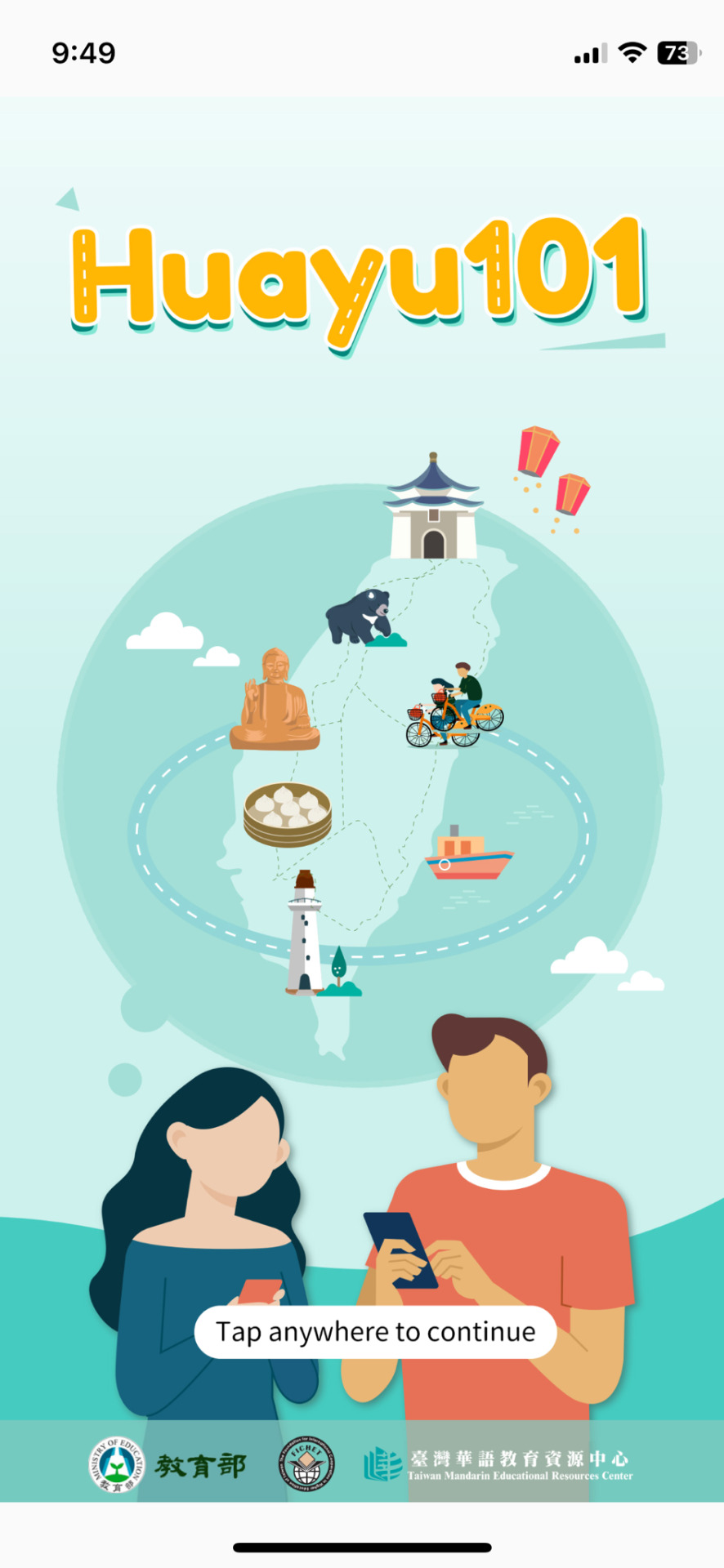
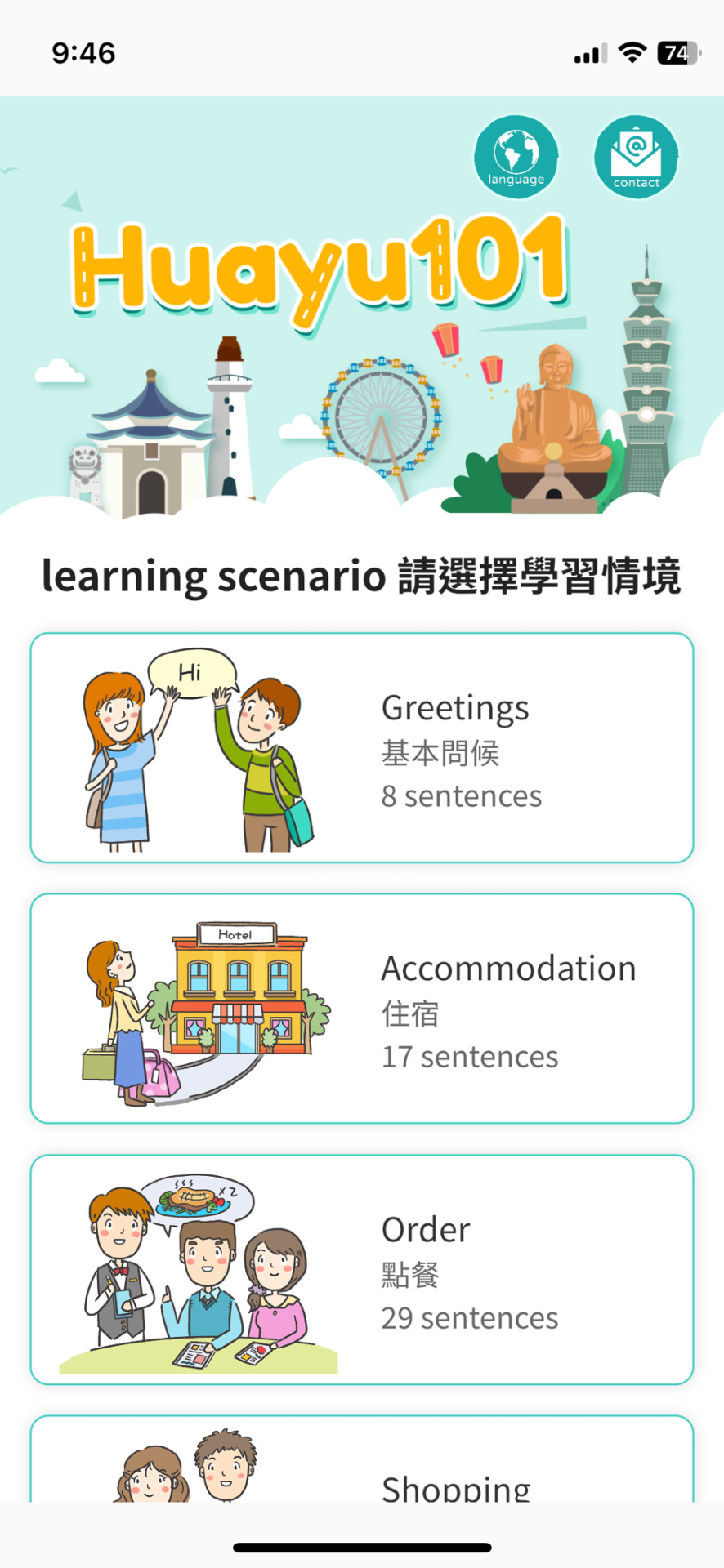
Here is a list of the topics:
Greetings 基本問候
Accommodation 住宿
Order 點餐
Shopping 購物
Transportation 交通
Asking for help 急難救助
City tour 城市遊覽
Arts and cultural activities 藝文活動
Call and reservation 電話與預約
Exchange 換鈔
Making friends 認識朋友
Hospital and post office 看病及郵寄
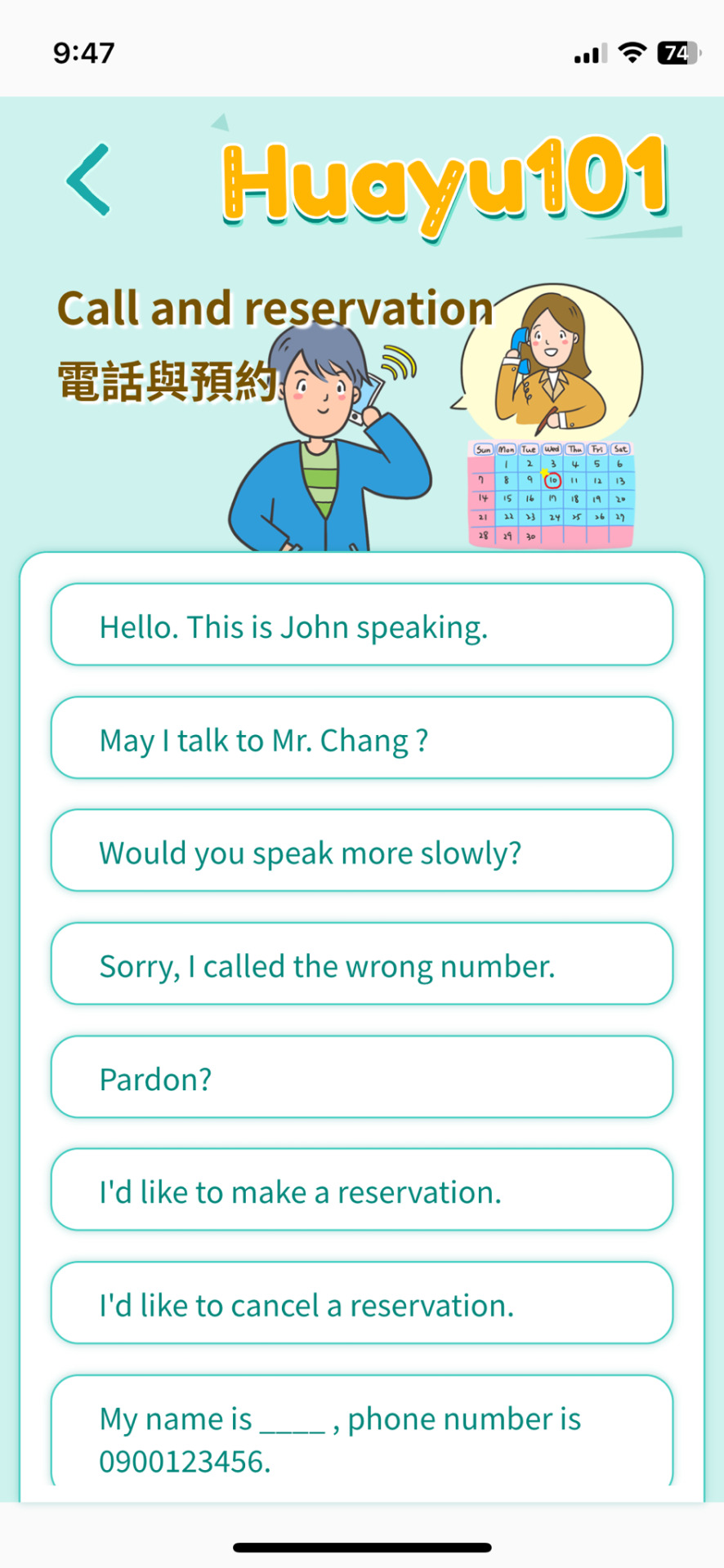
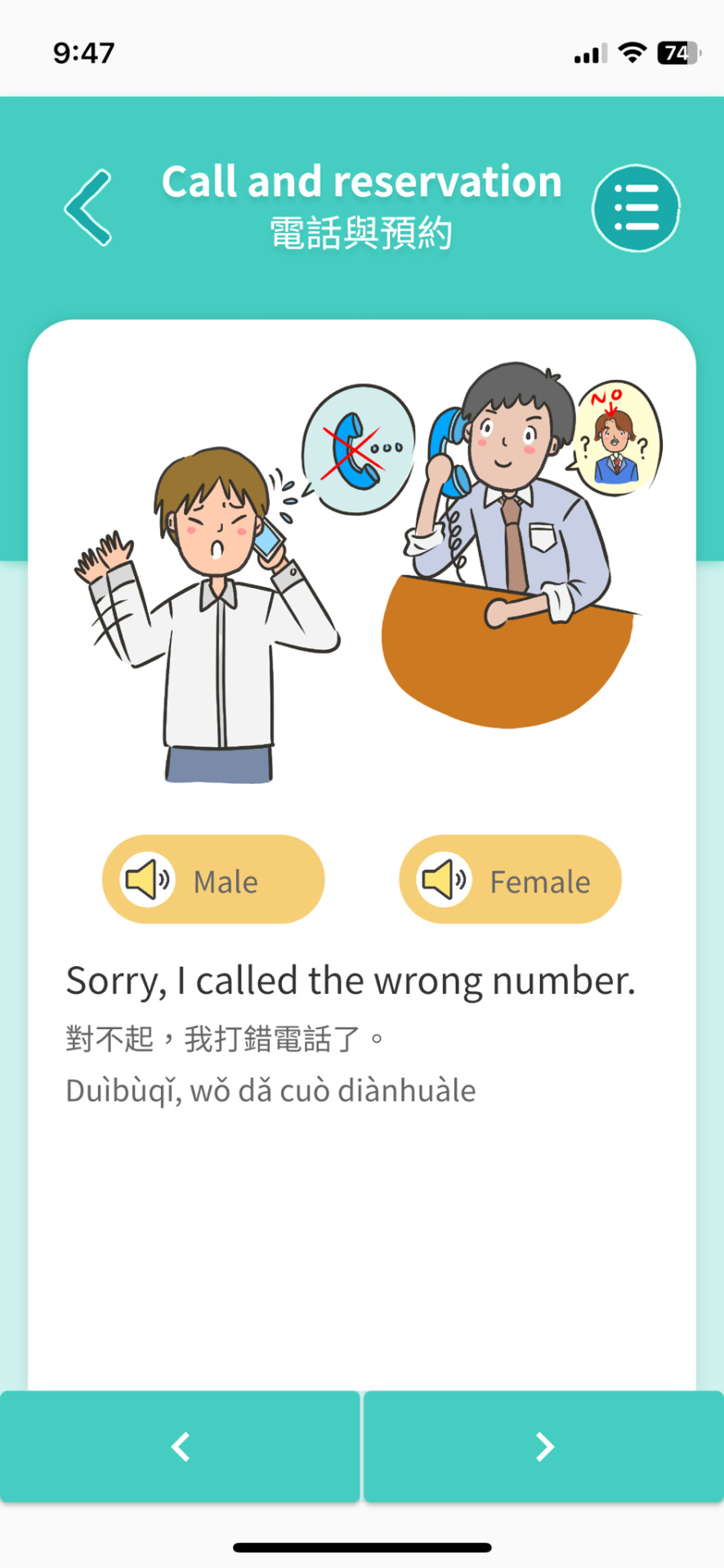
After selecting a topic, you'll see a list of phrases, sentences, and questions. These are very practical things you might need to say or that a waiter, clerk, etc. might say to you.
They even have audio! To me it sounds like real people, not text to speech. Hypothetically, if you can't speak any Mandarin, you could get by by playing the audio to people.
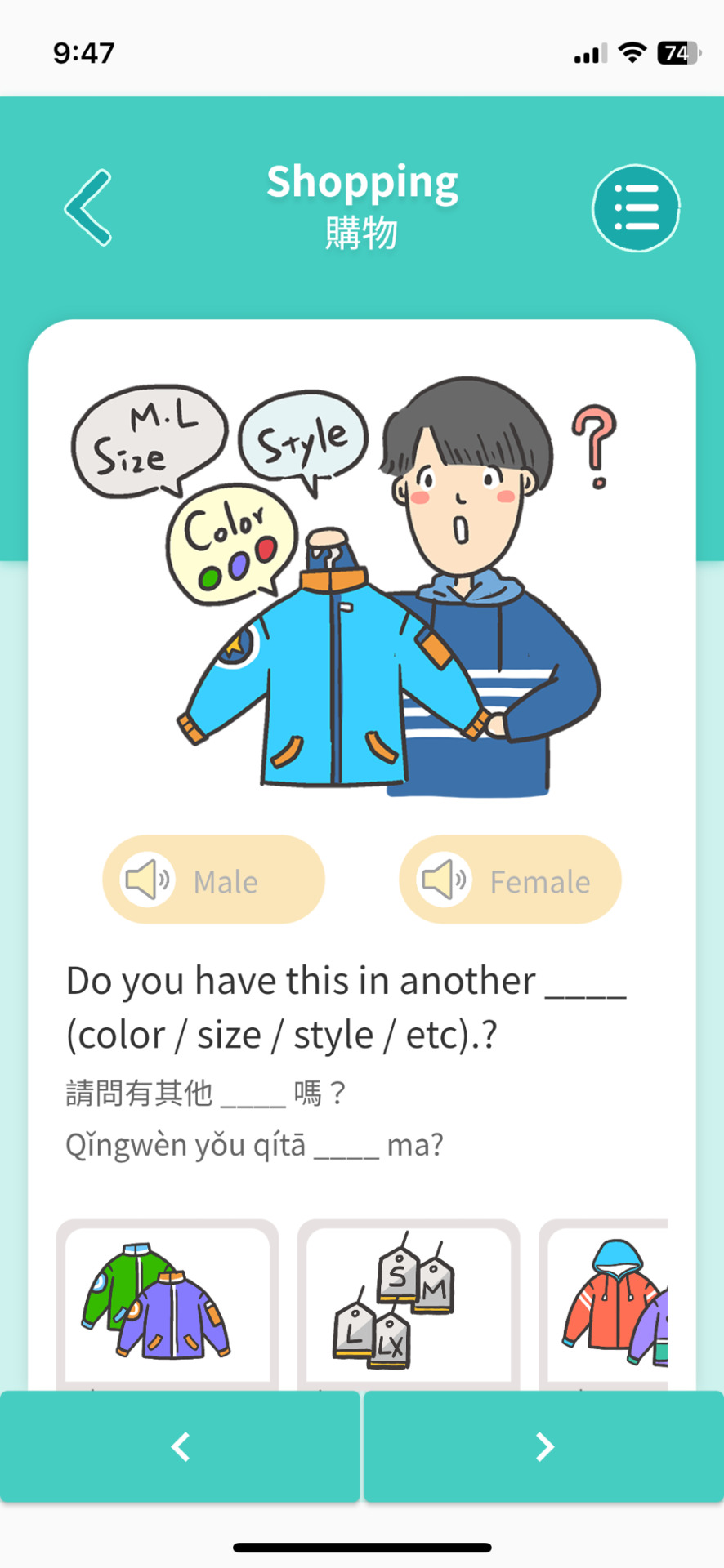
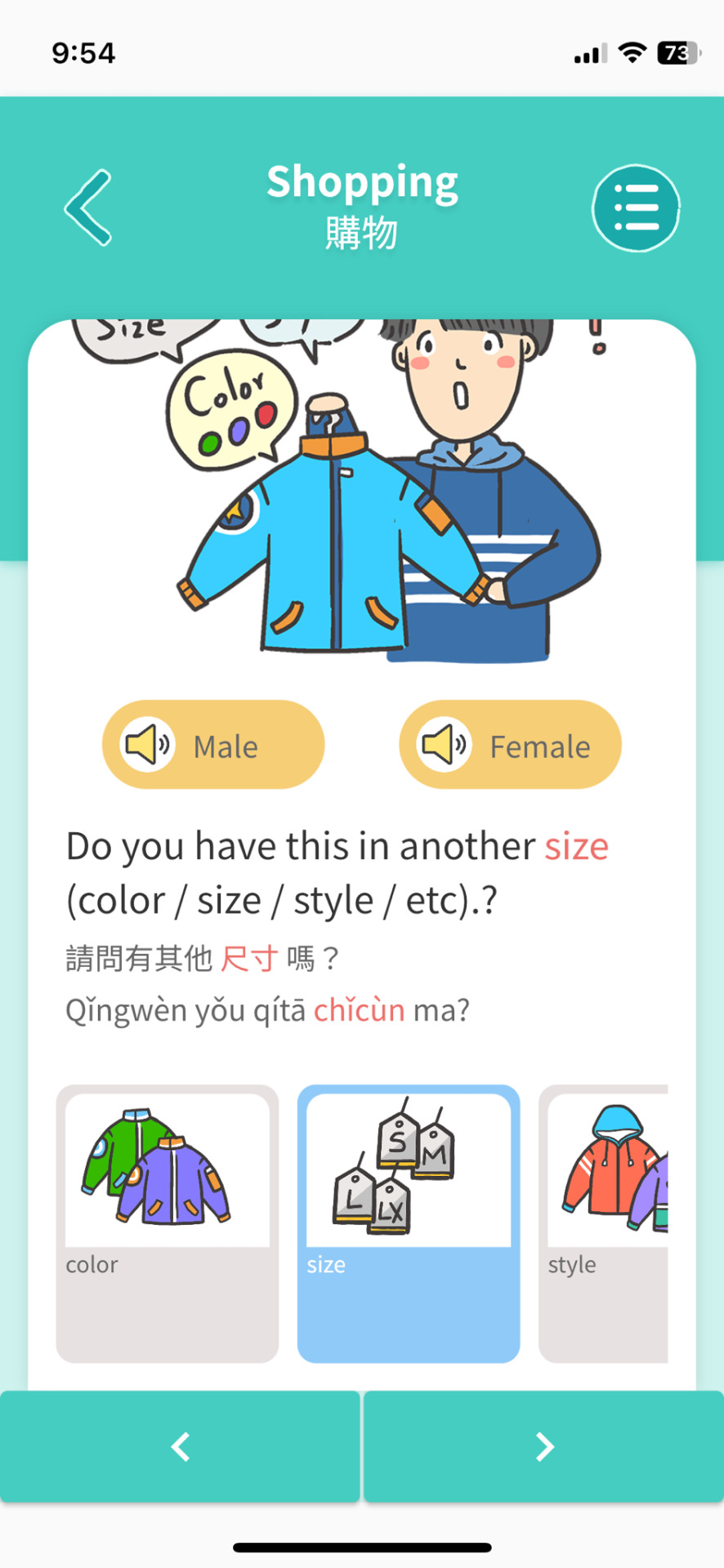
For some sentences/questions, they even provide multiple options, and you can select the word that's applicable to you.
Besides English, the app and website also support Thai, Vietnamese, Japanese, and Bahasa Indonesia.
I think this app is helpful even for upper-intermediate/advanced learners. I know enough vocabulary to make do and be understood, but I'm lacking knowledge of how native speakers would naturally phrase things. This app helps fill those gaps.
#chinese resources#taiwan#chinese#mandarin#mandarin chinese#chinese language#studyblr#langblr#learning languages#language learning#chinese langblr#mandarin langblr#languageblr
196 notes
·
View notes
Note
what's that one chinese province/region that everyone recognizes as having a very weird accent? it's on the tip of my tongue but i can't remember it. dongbei? something about the accent being like the american equivalent of a country bumpkin...
Dongbei is the northeast—Heilongjiang, Jilin, and Liaoning province (Neimeng/Inner Mongolia is sort of honorary dongbei). Northerners use heavy erhua but tbh I wouldn't really consider that the American equivalent of "country bumpkin" because that implies something cute about it, I feel like? And northern accents are quite raucous and harsh sounding. I also don't know that the dongbei accent is considered weird since erhua is pretty widespread. Beijingers (capital) use erhuayin, even.
But the Dongbei region is probably what you're thinking about!
#text#answered ask#dongbei doesn't have an accent /j#i think most non chinese mandarin learners also learn erhua from what i've seen in the tags (of my related posts)#if you asked me what the country bumpkin accent was i'd say fujian or taiwan accent lol
58 notes
·
View notes
Text

52 notes
·
View notes
Text
"Top", "Bottom" Discussion in Unknown ep. 12
The Office Gossip Scene
[Edited on 10th May; changes under clarification headings]
Now that the Unknown has resurrected the conversation about gong shou, let’s talk about it. The what and the why, so to say. Thank you @1serotonindeficientgirl (whose post inspired mine).
I welcome critiques and corrections. So, please feel free to do so.
Scenes and subtitles
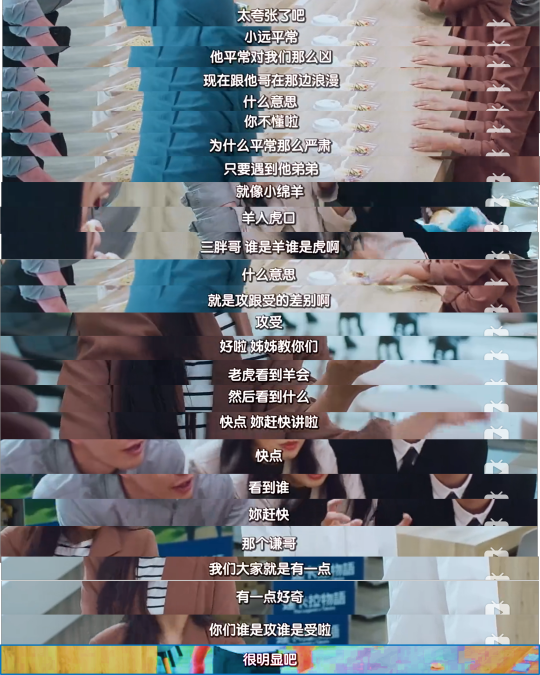
The discussion in the episode starts with Wei Qian’s staff gossiping about his relationship with Wei ZhiYuan. One of the staff members comments that Wei Qian is like a little lamb (小绵羊) when it comes to his little brother:
只要遇到他弟弟 就像小绵羊
Someone replies with the following idiom:
羊入虎口
(Literally: “a sheep enters a tiger's mouth”)
It means to enter a dangerous situation where one will certainly suffer [Source: Wiktionary].
The female employee (who witnessed their kiss) asks San Pang:
三胖哥谁是羊谁是虎啊 - Who is the lamb (羊; sheep) and who is the tiger (虎)?
This has some employees confused and they ask for an explanation. They receive the following reply:
就是攻跟受的差别啊 – [it means] between them, who is gong and who is shou?
One of the staff members repeats the unfamiliar terms:
攻受 – gong shou
and the fu-nu (腐女; fujoshi) offers an explanation:
好啦姊姊教你们 – let this elder sis explain
老虎看到羊会 – the tiger upon seeing the lamb…
Before she can complete her explanation, Wei Qian moves into the scene accompanied by the growl of a big cat. The gossipers disband.
In the end our fu-nu expresses their support for Wei Qian’s relationship with Wei ZhiYuan. Before she runs off, she throws him the question:
你们谁是攻谁是受啦 – between the two of you, who is gong and who is shou?
In the next shot Wei Qian is alone. He flexes his muscles and comments:
很明显吧 - It's obvious, isn't it?
[END OF SCENE]
Everyone at that office seems pretty close. The staff calls Wei “Qian ge” 谦哥 (first name + brother) and not as “Mr. Wei” (as the English subtitles suggests). Looks like Lao Xiong (emphasis on Lao = old) is the only one who clearly disapproves of such gossipmongering.
Notice how the terms gong and shou were translated directly into top and bottom in English subtitles. While that’s technically correct, there’s some nuance missing.
While there are tongzhi (同志;queer) people who use the terms gong and shou, these are not the most popular terms for top and bottom in the tongzhi community. This series specifically uses the terms gong (攻) and shou (受). Why? We’ll get to that in a minute.
In a BL, being shou means that character is the bottom in that particular ship. That character could be top, bottom, versatile or neither in another ship. A character is a bottom (as we use the term in English) only when that character is an absolute shou (sou uke in Japanese). An absolute shou is invariably shou. No matter which ship he becomes part of and no matter who he is paired with, he will be the shou. Similar difference exists between the terms “top” and “gong”.
English subtitles use ‘top’ and ‘bottom’ from the get-go. There is no need to explain what those terms mean. But that’s not the case with gong shou – only 腐 (fu) people (BL fans) really knows what those terms really mean and thus warrants explanation.
Clarification
[Edited. Thank you @abstractelysium and @wen-kexing-apologist for contributing to the conversation.]
As noted in the convo, Wei Qian is pretty ferocious in the office and is only gentle when it comes to Wei ZhiYuan. So, it is normal that gossiping irrespective of topic would end as soon as he arrives. Also, I think Wei Qian didn’t get what gong shou means other than allusion to tiger and lamb. The original language dialogues don’t make it clear that gong and shou means top and bottom (in a ship). [The English subs gives off that impression since gong and shou were simply translated.] Moreover, those terms are danmei literacies that has entered dictionaries but not necessarily public knowledge.
It is like an insider joke for fu-people made possible by Wei Qian’s ignorance. That wouldn’t have worked on Wei ZhiYuan who read danmei while growing up. That wouldn’t have worked if the fu nu (fujoshi) stuck around to explain what that means.
Usually in such conversations in BL, fu-people are shown to be mistaken: they either mess up the ship/dynamic (Love By Chance 1) or the character(s) in the ship deliberately trick them (Counter Attack). It is almost always played out with seme/gong’s approval in BL - not sure if that dynamic between fu-people & seme aka gong character ever appeared in any live-action dynamic. The trigger of this scene is Wei ZhiYuan’s deliberate choice of actions: PDA, kiss in the office right in front of a staff member.
BL literacies
BL is a media genre in itself with different sub-genres, genre conventions and classic works. It sure has a lot of overlap with other genres:
Romance as well as GL – they coevolved. They share mothers and other ancestors.
Queer – Is it really a genre? Even if one were to ignore queer as method in academia, it is still so complex.
Let me quote Taiwanese tongzhi author Chiang-Sheng Kuo:
… what exactly is queer literature? Is it queer literature if queer people like to read it, or is it only queer literature if there are queer characters in the books? Or is it an appendage of the queer movement? If a queer author writes a book without queer characters, does that represent a certain aspect of queer culture?
(You can find the whole interview here.)
Just as danmei (耽美; Chinese BL) has its roots in Japanese BL, so is gong (攻) and shou (受) from seme (攻め) uke (受け).
gong shou aka seme uke dynamics
Mother of BL, Mori Mari, didn’t come up with it, nor did her father Mori Ogai. Both she and her father, among the other dozen tanbi (耽美; same writing as danmei but different readings cause different languages, and different meanings cause different cultures) authors inherited it from authors before them who wrote on contemporaneous and historic Japanese male androphilia.
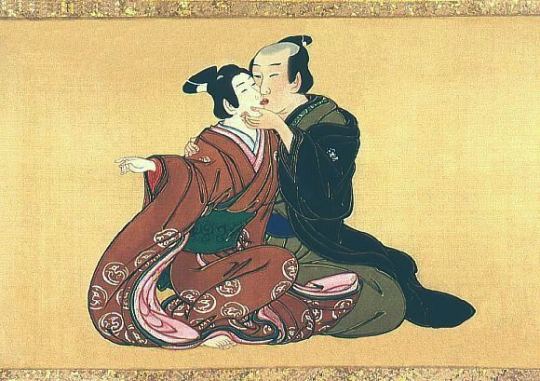
Spring Pastimes. Miyagawa Isshō, c. 1750 | seme uke dynamics in nanshoku pre-dates BL by hundreds of years.
While there is no dearth of riba (versatile) characters in BL, seme uke dynamics is:
a genre specialty. There are similar words in use in GL as well.
an enduring connection to the past of where BL was born.
remnants of a particular model of queerness; an alternative to LGBTQIA+ form of queerness.
What’s there in the scene
There is something hidden in the euphemistic explanation. On the face of it tiger devouring a lamb would be allusion to tiger gong devouring (topping) lamb shou.
But then tiger is a big cat and lamb is a herbivore. Neko (ネコ), the Japanese queer term for “bottom” means cat (etymology is obscure with this one). The term herbivore (草食) when used to describe a man means that man is masculine in a non-hegemonic way. In the series, Wei Qian embodies the hegemonic masculinity while Wei ZhiYuan is a quintessential grass-eater.
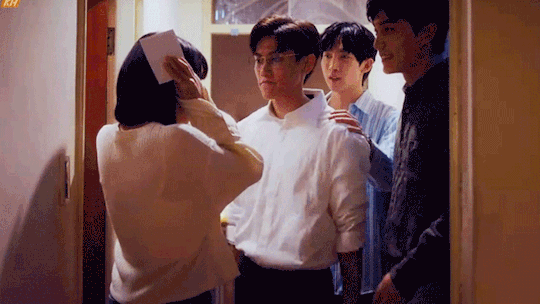
So, the description of lamb being devoured by a tiger would not be associated as simply as with the terms gong and shou especially when it comes from Taiwan which has been historically more connected to Japanese BL than any other BL producers (Sinophone or otherwise). This connection was highlighted during 魏之远 Wei ZhiYuan's naming scene where Le Ge used the borrowed Japanese possessive particle (の; no).
の = 之 (zhī)
The big cat sound effect for Wei Qian in particular adds to this. Wei Qian’s character is best described as a queen shou.
女王受 Queen shou: A shou who is as proud as a queen, and would devour gong. (source)
Wei Qian and Wei ZhiYuan’s ship is best described by Priest (the author of Da Ge, source novel of Unknown):
经典款毒舌女王和屁颠屁颠的忠犬组合 – paring of a classic, sharp-tongued queen and a tail-wagging loyal dog.
BL literacies & Affective learning
BL kind of has its own language (with words like gong shou), which fans use to share ideas and feelings. This secret language is what academics call ‘literacies.’ BL fans are all in on this and have their own ‘ways of behaving, interacting, valuing, thinking, believing, speaking, and often reading and writing’. Through ‘various visual, conceptual and textual literacies’, BL fans weave ‘an intertextual database of narrative and visual tropes which readers draw upon to interpret BL’. BL literacies is learnt through ‘affective hermeneutics – a set way of gaining knowledge through feelings.’ Audience learn BL literacies from BL works ‘which eventually leads to their active engagement’ with other BL fans. (source; Kristine Michelle L. Santos explains it in the context of Japanese BL but it applies to all BL media irrespective of where it is from.)
That scene in Unknown was set up to familiarize audience with BL literacies – not only those specific words but also the larger practice of imagining character pairing and indulging in that imagination. This is evident from the overall jubilant tone of the scene and the camera work. It is a celebration of moe. That is why we have a character who is not only a fu-nu but also willing to be openly fu-nu in that setting, sharing BL literacies and her colleagues interested to learn.
For other examples, check out Thomas Baudinette’s book Boys Love Media in Thailand: Celebrity, Fans, and Transnational Asian Queer Popular Culture. He has a chapter dedicated to explaining how genre conventions were taught to the early audience of Thai BL through similar scenes.

Why must they do this? Why break the fourth wall like this? To get more people interested in the intricacies of BL and to get them to participate in the culture. BL is created by fu-people and BL literacies are their tools and source of joy. BL must draw in more people to keep BL culture going. Commercialized BL we have today is the result of an affective culture formed over the years. It is built on years of labor of authors and their audience. I mean, look at the Unknown. This BL employs the well-developed Loyal Dog gong x Queen shou dynamics. Apart from that which the series took from the novel, it also drew upon other common BL beats to tease the relationship between Dr. Lin and his senior.
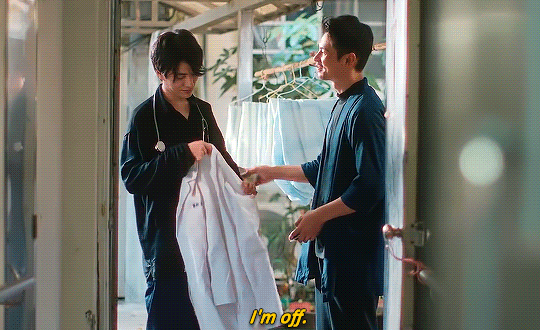
Teaching BL literacies is political. When Mainland Chinese government gets dangai productions to change names and relationships of characters (among other things), it is to prevent live-action audience from discovering BL as a genre with it disruptive potential. It is not only character's names and relationships that are changed. There are entire sub-genres of danmei (such as 高干) that got wiped out by censorship.
When a Taiwanese BL not only retains the character names & relationships and shows relatively explicit intimate scenes but also actively promotes BL literacies, it is an act of resistance. Discussion of gong shou, being genre specialty, manages to do so. Interestingly, they are doing it in an adaptation of a novel by Priest who has a particular reputation with self-censorship. That scene is not part of the source novel.
Heterosexual & gong shou
Association of bottom with the feminine (female or otherwise) has its roots in medicalization (and pathologization) of homosexuality in the west (such as through theories by scientists and doctors like Richard von Krafft-Ebing). This “knowledge” subsequently spread across the globe and was adopted to varying degrees and forms.
Moreover, the terms gong and shou applies to heterosexual pairing too.
BG (boy girl) ships have male gong and female shou
GB (girl boy) ships have female gong and male shou. [If this is interesting unfamiliar territory, check out the series Dong Lan Xue (2023).]

Moreover, if one is willing to look beyond LGBTQIA+ form of queerness (which is born and brought up in America), one can see other queer possibilities. For example, Kothi-Panthi queerness in South Asia which is characterized by explicit presentation of top bottom dynamics. There are very many similar forms of queerness in other parts of Global South.
In many cultures, sexuality doesn’t inform identity but sexual preference does. That’s why is you are to ask a kothi-panthi couple which one of you is the bottom, the kothi would tell you without hesitation: “I am.” Might even asked you in turn, “Couldn’t you tell?” For them, sexual preference (being kothi) rather than sexual orientation takes center stage. This is the inverse of how LGBTQIA+ form of queerness looks at it. While LGBTQIA+ model of queerness focuses on sexual orientation (being pan, ace, gay, etc.) as something that can be freely discussed but sexual preference (top, bottom, versatile, side, etc.) is considered private.
*Just to be clear, “kothi” is a term of self-identification. It means that the person is a bottom. Panthi is not self-identification. That’s how kothi address the men who top them.
While thanks to westernization LGBTQIA+ form of queerness enjoys more visibility, I think it is better to consider it as one type of queerness rather than the only model of queerness. Gong shou dynamics doesn’t fit into LGBTQIA+ form of queerness because it comes from another, much-older nanshoku model of queerness that made its way into Japan from China, hundreds of years ago. Friction between different models of queerness is common where ever they interact. In 1970s, Japan was witness to public debates between a younger, westernized Japanese queer activist Itō Satoru and other Japanese queer activists such as Fushimi Noriaki and Tōgō Ken who were rooted in indigenous tradition of male-male sexuality.
[Itō Satoru’s] insistence on the necessity of adopting western models of gay identity and coming out have brought him into conflict with other activists such as Fushimi Noriaki and veteran campaigner Tōgō Ken.
Interpretation and Orientalism: Outing Japan's Sexual Minorities to the English-Speaking World by Mark McLelland
Clarification
[Edited. Thank you @wen-kexing-apologist for contributing to the conversation.]
Under the LGBTQ+ model of queerness, it maybe considered inappropriate to have conversation about “top” “bottom”, especially in the office, going as far as to ask that to Qian ge. From that perspective, the BL audience (especially those who are unfamiliar with the terms gong and shou) are fair in their assessment of that scene being out of place or outright offensive.
I think things might have been a bit different if the subtitles retained the terms gong shou instead of “top” “bottom” since they aren’t exactly the same thing. That would have had the desired effect (of introducing BL literacies - gong shou in the context of 强强 (strong gong x strong shou) pairing) without unintended consequence.
What is considered rude under the LGBTQ+ framework is an essential part of fu culture. It is like addressing Wei Qian as just Qian – that could be considered rude in the original language but pretty normal in English. Different cultures, different norms, so to speak. It is only polite to be mindful of the cultural differences and avoid discussing about sexual preference where it is considered inappropriate.
As for the normalization of fu culture (especially discussions of gong shou), in my opinion the didactic scope of Unknown is undermined by the very fact that it is primarily a gǔkē danmei (via adoption (收养)) with tongyangxi vibes (highlighted multiple times by San Pang in the novel) associated with Wei ZhiYuan.
Somehow fu-culture gets judged by those who consume products of that culture. Everyone is happy with fu-cultural products as long as fu-people don't discuss who is gong and who is shou.
Why are fu-culture and BL always judged based on a culturally alien lgbtq+ form of queerness? Why must BL be arm-twisted to fit into norms of lgbtq+ form of queerness just because that is the most mainstream form of queerness?
-
That’s not much a conclusion but this is already so long. I really hope it gives you something to think about.
If you are interested, here's more.
#boys love#danmei#taiwanese bl#bl meta#bl history#bl analysis#unknown the series#unknown the series analysis#unknown the series meta#unknown#priest novels#unknown bl#unknown series#unknown the series spoilers#taiwanese series#taiwanese drama#chinese bl#chinese queer culture#danmei tropes#danmei novels#bl tropes#bl trivia#bl taiwan#unknown bl meta#unknown bl analysis#bl critique#bl novel#bl drama#yuan x qian#zhiyuan x qian
184 notes
·
View notes
Text
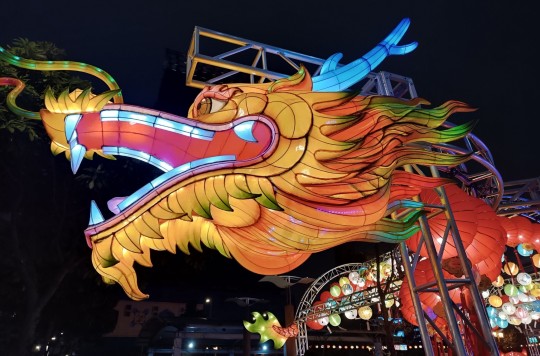
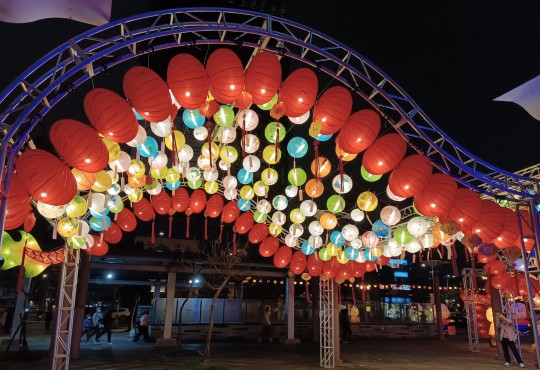
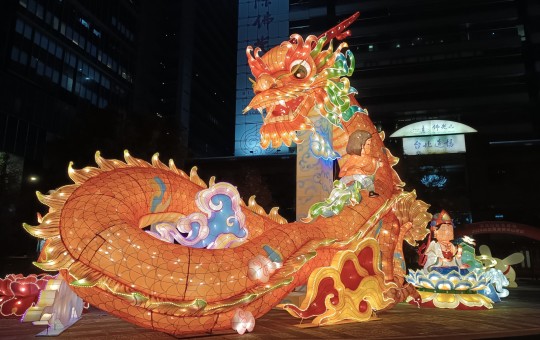

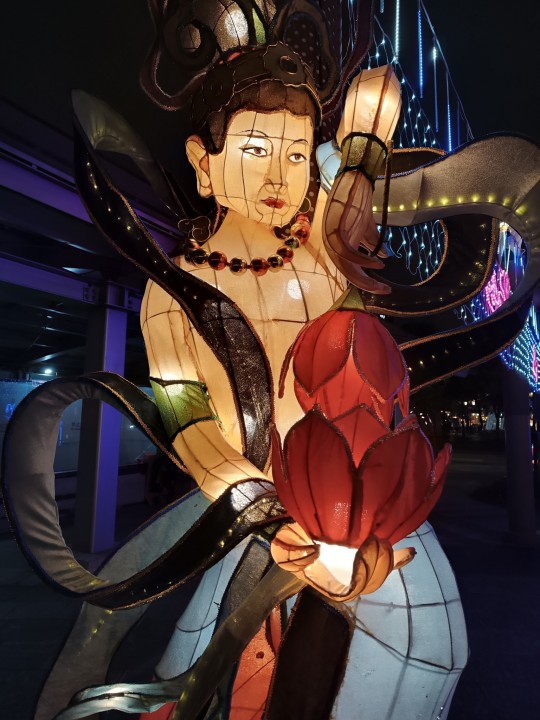

Taipei is not hosting the big national lantern festival this year but there are still some cool things set up around the city, this one is outside Songshan Station 松山站
#afterwards i went to raohe night market 饒河夜市 cause there was a Vietnamese place i thought had bún chả#but what i mistakenly saw on the menu was actually bún cá#and i realised this error when i saw the Chinese under it as 魚米線#so i asked the lady about bún chả and she was like oh sure and then gave me bún thịt nướng??#Wikipedia says foreigners often think they're related maybe she thought i wouldn't care#i mean it was still good but my quest for bún chả goes unfulfilled#taiwan#taipei#lanterns#chinese new year#dragons#year of the dragon
323 notes
·
View notes
Text
cool fun fact for sunday
East Asia and South of South America are Antipodes meaning that they are in completely opposite points on the globe.
This means that when Acau joins we will have ccs in oppolise places playing together. People who physically could not be further away from each other.
The ones in buenos aires would be the furthest but i doubt Carre will play so I think cellbit or bagi are next. (idk where exactly they live but I'm pretty sure they come from the south of brazil)
Here is a map of the world showing antipodes. The areas in orange are perfectly opposite to each other.
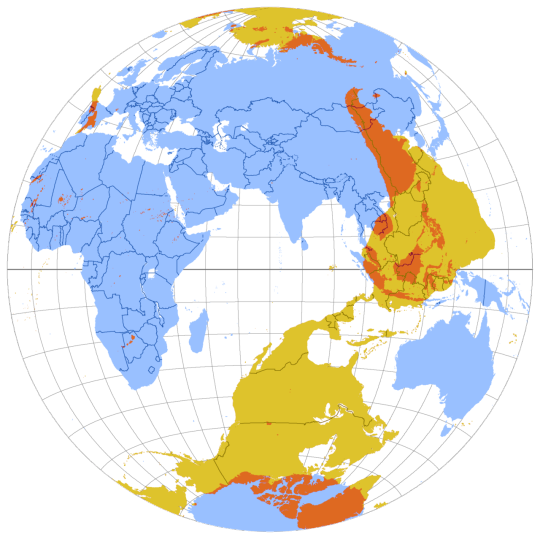
#qsmp#hope when chinese speaking streamers get added we can get carre on as well so we have someone in Beijing and in Buenos Aires being together#they are both nearly opposite as well#alternativelly we could get someone in Peru and South East Asia#Or in Spain and New Zealand#Colombia/ venezuela and Indonesia too#ahh cant wait for more Asian CCs and mroe south american CCs#Taiwan and paraguay#Brazila dn the philipines but that part of brazil is fairly uninhabited (the coast has most people)#Chile and central china too
240 notes
·
View notes
Text
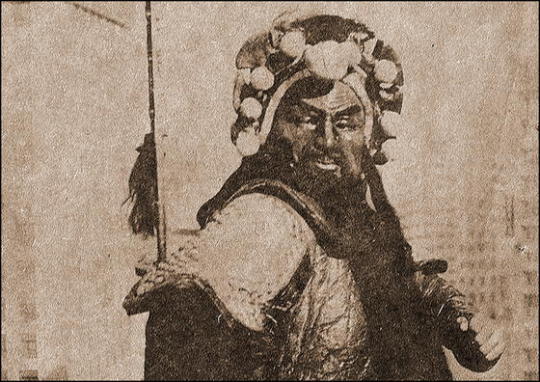


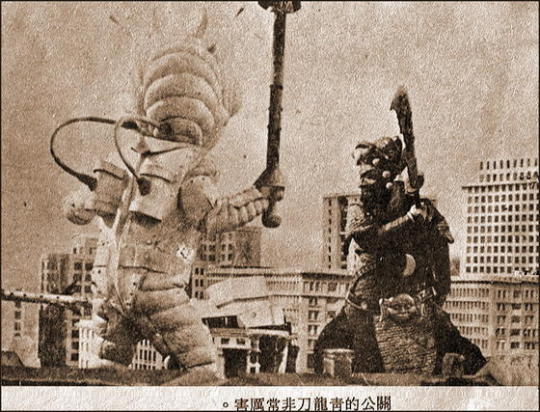
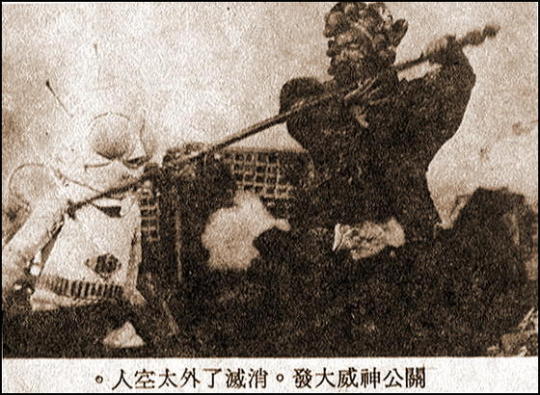
"Zhan Shen" (1976) is a Chinese movie where the war god, Zhan Shan, returns to modern times, and after growing to colossal size, battles enormous Martian invaders.
430 notes
·
View notes